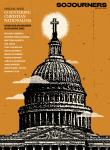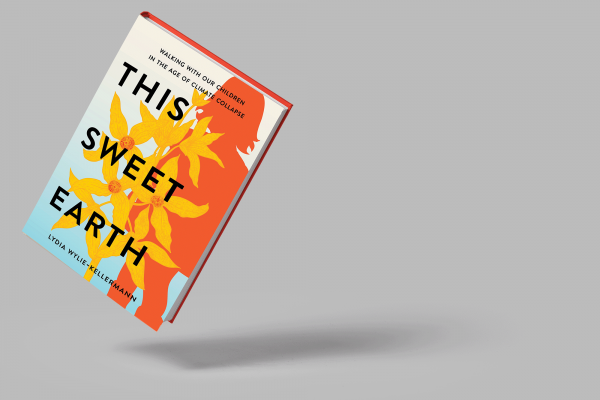LYDIA WYLIE-KELLERMANN HAS a large cemetery in her backyard. There lie “weeds and tulips and a few homemade tombstones ... beloved fish, brutally attacked chickens, stray cats, and two beloved rabbits.” In this cemetery, her two preteen sons, Isaac and Cedar, and wife Erinn Fahey host a lot of funerals. Why? Living during climate collapse means we must face death with dignity.
Approaching mortality with gentleness is just one of many lessons woven throughout This Sweet Earth: Walking with Our Children in the Age of Climate Collapse. Reading the book feels like listening to stories shared by a friend over a glass of sweet tea.
This Sweet Earth is filled with narratives from Wylie-Kellermann’s life as an activist, parent, and watershed-dweller. Every chapter is benedicted by corresponding prayers and blessings, which affirm that Wylie-Kellermann was brought up on a diet of poetry and anti-nuclear pamphlets. Former editor of Geez magazine and daughter of protest prophet Bill Wylie-Kellermann and organizer and writer Jeanie Wylie-Kellermann, Lydia chooses words with precision, power, and a bit of whimsy.
Wisdom like “Bless this place with your own tears until it becomes mud” and “Release your superiority. / Rejoice in your wild mortal flesh” effortlessly sits on the page across from stories of flood and local climate catastrophe.
From watching civil disobedience actions to baking bread without a recipe, the stories of Wylie-Kellermann’s family show the reader a playful and prophetic perspective that makes awe possible in the face of despair.
I got a peek inside of this world when I visited the Kirkridge Retreat and Study Center where Wylie-Kellermann serves as executive director. One evening I joined a group at a Samhain bonfire where we named loved ones who had passed on to the other side. My grandfather had died earlier in the year, and as I said his name and shared his love of tomatoes with the group, I felt close to the veil between life and death. In real life, as in the text, Wylie-Kellermann creates moments of authentic connection with the earth.
One such courageous moment occurs in the book when her son Cedar asks if human beings will become extinct. Wylie-Kellermann wrestles with how to answer her son’s existential wonderings, bringing the reader along the winding path toward the uncertain truth: “Maybe,” she tells him, before explaining her response to readers: “We don’t have all the answers. We tell [children] what we know. And we hold their hand and tell them we are going to figure it out together.”
For parents seeking advice on how to raise young ones through climate change, this book offers both substantial and whimsical advice: Unplug, plant seeds, embrace cemeteries, and honor burials. For those who aren’t raising children but find themselves in meaningful relationships with kids and elders, this book redirects climate anxiety toward reconnection and enchantment. I found myself wanting to re-up my local CSA box and dice garlic for a warm soup.
In This Sweet Earth, Wylie-Kellermann invites you to come to the table (or bonfire, farm, or funeral) and encourages you to bring any despair, worry, and anxiety with you. If your heart is worn and your spirit is sulking, pick up this book. The delicious prose will make you love the earth again.

Got something to say about what you're reading? We value your feedback!







